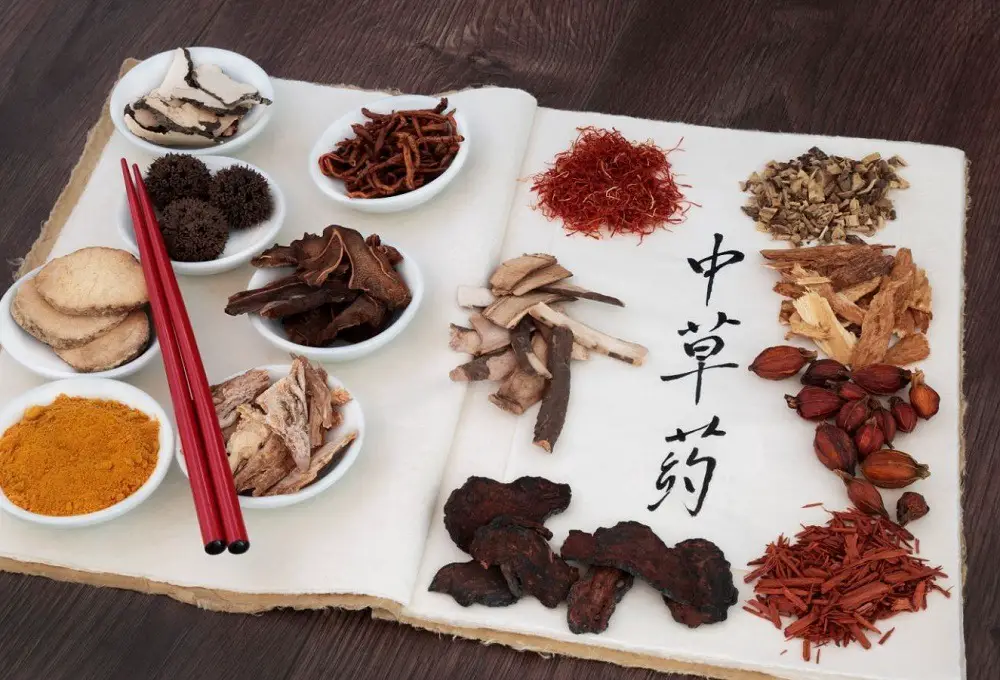Whether it be from seasonal changes or environmental stressors, our lungs often take the hit of everyday life. The presence of weaker lungs is commonly accompanied by shortness of breath, chest pain, and the inability to take full, deep breaths. So, what can be done?
Well, according to Chinese medicine, the secret to healthy lungs relies heavily on wellbeing and mindfulness – and plenty of it. Herbs and other holistic remedies can also play a huge role in supporting the healthy functioning of the lungs, and that also goes for the greater respiratory system, too.

So, besides opting for a more zen lifestyle, making sure that we’re regularly exercising, and doing our best to avoid environmental irritants – could the key to happy lungs actually come down to traditional Chinese medicine? We’re here to unpack the truth. Read on to discover more!
The Role Of The Lungs, According To Chinese Medicine
According to Chinese medicine, the lung plays a very important role not only in the healthy functioning of our bodies, but also with regards to the energy flow. With that being said, Chinese medicine places an emphasis on the lung’s ability to act as a mediator between that of the outside world, and the inside world (our bodies). The lungs help to both protect the inside of our bodies, while also helping to distribute healing energy throughout us, from our head to the tip of our toes.
So, with that being said, in Chinese medicine practice, the lung’s are seen as being necessary to our wellbeing and mindfulness, as well as playing one of the most important parts to our respiratory system. As we breathe in and out, our lungs help to circulate oxygen throughout our bloodstream, while our skin’s pores aid in this process via our pores, which help to absorb oxygen, and rid our bodies of toxins, bacteria and more.
This vital defensive energy of the lungs and the skin ties in closely to the large intestine, which according to Chinese medicine, works very closely with the lung’s. Both the lungs and large intestine work together to help improve the external layers of our skin. As external pathogens and toxins are able to easily enter our bodies via the respiratory and digestive system, both our lungs and large intestine are deemed as being responsible for helping to maintain the defensive and protective energy flowing throughout our bodies to prevent any of these pathogens from entering our bodies.
To further back up this notion, Chinese medicine further argues that the bodies ability to fight off pathogens are directly linked to both the lungs and the large intestine (or colon). In addition to this, positive lung energy is also directly linked to quick recoveries from illness, immunity to certain illnesses as well as a youthful and radiant appearance of the complexion and body.
However, negative lung energy is linked to a weak posture, breathing difficulties, wheezing and coughing, as well as dry and dull skin due to the lack of lung energy. A weaker, negative lung energy is also associated with feelings of sadness, heartache and more.
How To Incorporate Chinese Herbs Into Everyday Life To Improve Lung Health:
In Chinese medicine, energy strengthening Chinese herbs are deemed the best remedy of lungs that are in need of rejuvenation. Below, let’s take a look at some of the most commonly used Chinese herbs for lung health, as well as a few ways that you can use them in daily life:
- Astragalus – If you’re already a little familiar with Chinese medicine, then we’re sure you’ve already heard about the healing power of astragalus. According to Chinese medicine, astragalus has the power to not only protect our bodies from external pathogens, but also help us to form immunities against them – which makes it a great herb for lung health. Most specifically, astragalus is commonly used for people that suffer from chronic coughing or the flu, and is usually mixed into herbal tea.
- Schisandra – Here’s another Chinese herb that is well-suited to restoring health to the lungs. In particular, schisandra is used to help keep the lungs moist by preventing any healthy lung fluid from being extracted from the body. This makes it a great option for those who suffer from tickly coughs, wheezing and more. For best results, many people choose to steam this herb and then breathe it in.
- Cordyceps Mushroom – Ok, so, admittedly, the cordyceps isn’t a herb – but it’s a frequently used medicinal mushroom in Chinese medicine that we simply had to include in this list. Cordyceps mushrooms are specifically used to help strengthen weak lungs, and is especially useful in those who have lungs that are often pushed to the limit – such as runners and sports players. Cordyceps mushrooms are also beneficial to those who suffer from coughing and shortness of breath, and can be eaten in the same way your favorite mushrooms from the grocery store can.
Other Ways You Can Improve Lung Health:
Besides Chinese herbs, there are other ways that you can help to improve your lung health by incorporating the Chinese notion of body mindfulness into your everyday life. Let’s take a look:
Declutter and clean:
By taking the time to deep clean your home/space and declutter it from things that you no longer need, you will introduce a sense of mindfulness into your everyday life, as well as a better quality of air. Who said that spring cleaning couldn’t be all year long?
Pour love into yourself:
According to Chinese medicine and tradition, the lungs flourish when they are being treated with care. By taking the time to breathe, center yourself and treat yourself with love, you will be contributing to the healthy functioning of your body – including the lungs.
Make sure you’re getting fresh air:
One of the most surefire ways of supporting the overall health of your lungs is by making sure that you are getting fresh air everyday. Take walks in your local park or countryside, spend time outdoors and even try incorporating a little bit of outdoor exercise into your routine each week.
